Fighting Inflammation as a Runner
As a runner, inflammation will occur any time that you place a huge amount of stress on your body (whether mental or physical such as running a marathon) Therefore, it is something that we want to be thinking about as a runner.
Long distance runners are particularly susceptible to inflammation although the jury is still out as to whether it is due to:
- running high mileage
- the high intensity nature of the sport
- inadequate recovery between strenuous runs
- or even the constant state of fluctuating between a state of inflammation and non-inflammation due to running
What is inflammation?
According to WebMD, inflammation “is a process by which the body's white blood cells and substances they produce protect us from infection with foreign organisms, such as bacteria and viruses.
However, it can be both a good and a bad thing.
On one hand, the inflammation that we incur after a workout or a run also known as acute inflammation is necessary to help our body change and make adaptations. It helps our body to heal after a strenuous workout or even when we are sick or suffering from an injury.
On the flip side chronic inflammation is when our body is in a state of inflammation over a period of days, weeks, even months! It can begin to wear down our tissues and joints and increases our chance of injury and other health related problems. This is what we want to be aware of and fight off!
There are so many of us walking around in a state of constant inflammation even though we might have it “low grade”. However, this is so harmful for our health!
Signs of inflammation in your body:
Any time we think we might be experiencing inflammation, we want to monitor it to make sure it does not become chronic inflammation.
Some physical signs are:
- Redness
- Joint tenderness
- Pain
- Swelling
- Feeling stiff in your muscles
- Soreness
- Experiencing aches
Sometimes it can include running a fever, having hot and cold sweats, having a headache, or even feeling irritable.
Having chronic inflammation does not mean that you will consistently feel all of these things. Your body can get used to being in an inflammatory state after a while.
Just because you do not have a fever or don’t feel any pain does not mean that you are not suffering from inflammation.
The Risks of Inflammation for Runners + Reasons to get it under control!
As a long distance runner, you’re probably nodding your head at the signs of inflammation since you more than likely have already experienced them.
But really how serious can it be?
Experiencing a long term inflammatory response can lead to these conditions:
- It can break down your muscle tissues
- Destroy your joints
- Increases your risk of a running injury or any injury
- Causes damage to your cardiovascular cells (think the ventricles and atria of your heart)
- Causes damage to our arteries and veins throughout our body (do you suffer from varicose veins?)
- Speeds up the aging process
By getting it under control you can benefit from:
- Reducing your risk of disease (heart attack, Type II Diabetes)
- Reducing your chances of running injuries
- Having more energy versus feeling tired all of the time
- Having the ability to experience faster and more sustainable weight loss
- Stabilizing blood sugar levels
It helps with weight loss?
Yes! Any time that we are in a state of inflammation we will raise our histamine and cortisol levels.
Lyn-Genet Recitas from Mind Body Green simplifies this for us stating that histamines cause us to hold onto water weight - which is why we might see a short term increase in our weight although we are eating clean after a day of not eating clean and cortisol increases our stress levels causing us to pack fat away for the long term. How pleasant.
Making sure that we are not in an inflammatory state will help us to stabilize these levels and allow us to burn versus store fat more efficiently. (The 12 Week Half Marathon Weight Loss Challenge will also help you do the same thing as well. ;)
Ways to reduce inflammation:
Now that we realize that this is all a rather big deal, let’s talk about how we can combat and reduce it in our body!
- Drink lots of water! Something so simple yet so hard for many of us! Staying hydrated though is such an easy way to remove toxins, increase our circulation, and help clear out inflammation.
- Eat anti-inflammatory foods. We talked about this in the article “10 Foods & Activities to Include in Your Marathon Recovery Week."Some of the best anti-inflammatory foods are:
- Veggies - especially broccoli and spinach
- Fruits - especially blueberries, avocados and grapes
- Fish - particularly salmon and tuna
- Walnuts & other nuts
I particularly love this anti-inflammatory food pyramid from Dr. Weil that is a wonderful reference! If you have time, click over to his article on anti-inflammatory foods!
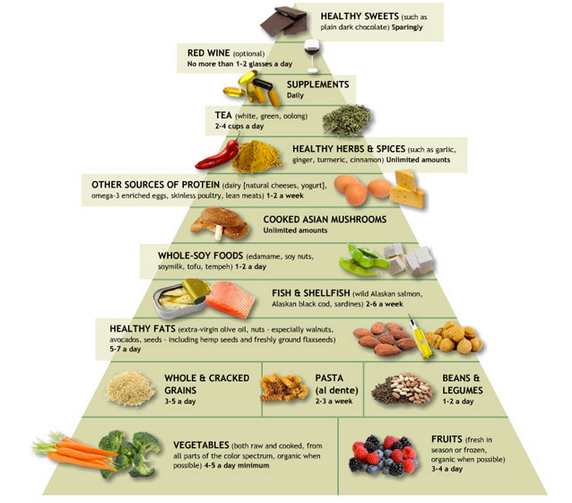
(Photo source: drweil.com)
- Avoid foods that promote inflammation: these would be mainly your “whites” such as refined sugars, white breads, starches, and pastas but can also include highly processed meats (hot dog, anyone?).
- Be smart about pairing foods. If you are going to indulge in “white” or inflammatory food then pair it with something that will help to bring down your blood sugar levels and not put you into an immediate food coma. This can be done by adding a protein or healthy fat to your “treat”. Some examples of these would be having almonds with your brownie and putting peanut butter on your graham cracker.
- Wear compression socks, leggings, or tights. This will reduce the impact you feel from the ground, increase your circulation and reduce your chances of swelling.
- Take a rest day or do a low impact workout, stretch, or even just go on a walk. Overtraining or running when you really need rest more will also promote a higher inflammatory response so be aware of how you are feeling. If you are feeling run-down, your energy levels are low, or you can’t shake your soreness from your last run then maybe you just need an extra rest day.
- For acute inflammation follow the RICE acronym: rest, ice, compression, elevation (preferably above heart level).
- Get 7-8 hours of sleep every night. Did you know that not getting enough sleep will raise your inflammation levels!? Even adults need bedtimes.
- You can also try supplements to decrease your inflammatory response. Some good ones are: circumin (which includes tumeric), fish oil, ginger, and of course good old Vitamin C.
Lastly, assess how you feel consistently whether you might be experiencing acute or chronic inflammation.
Do you feel any aches, pains, stiffness, soreness?
Do you feel like you are on a sugar high, or even hung over? - If yes, start combating it with food, RICE, sleep, etc.)
Learn to be proactive so that you are not in a constant state of inflammation.
Related Pages:
👋Sign up to receive the free printable strength exercises for runners: 👇
 |
As featured on:

Sources used on this page:
http://www.liveinthenow.com/article/anti-inflammatory-supplements-10-that-really-work
https://www.ncbi.nlm.nih.gov/pmc/articles/PMC5650970/
https://www.webmd.com/arthritis/about-inflammation#1
https://www.healthline.com/nutrition/6-anti-inflammatory-supplements#section5
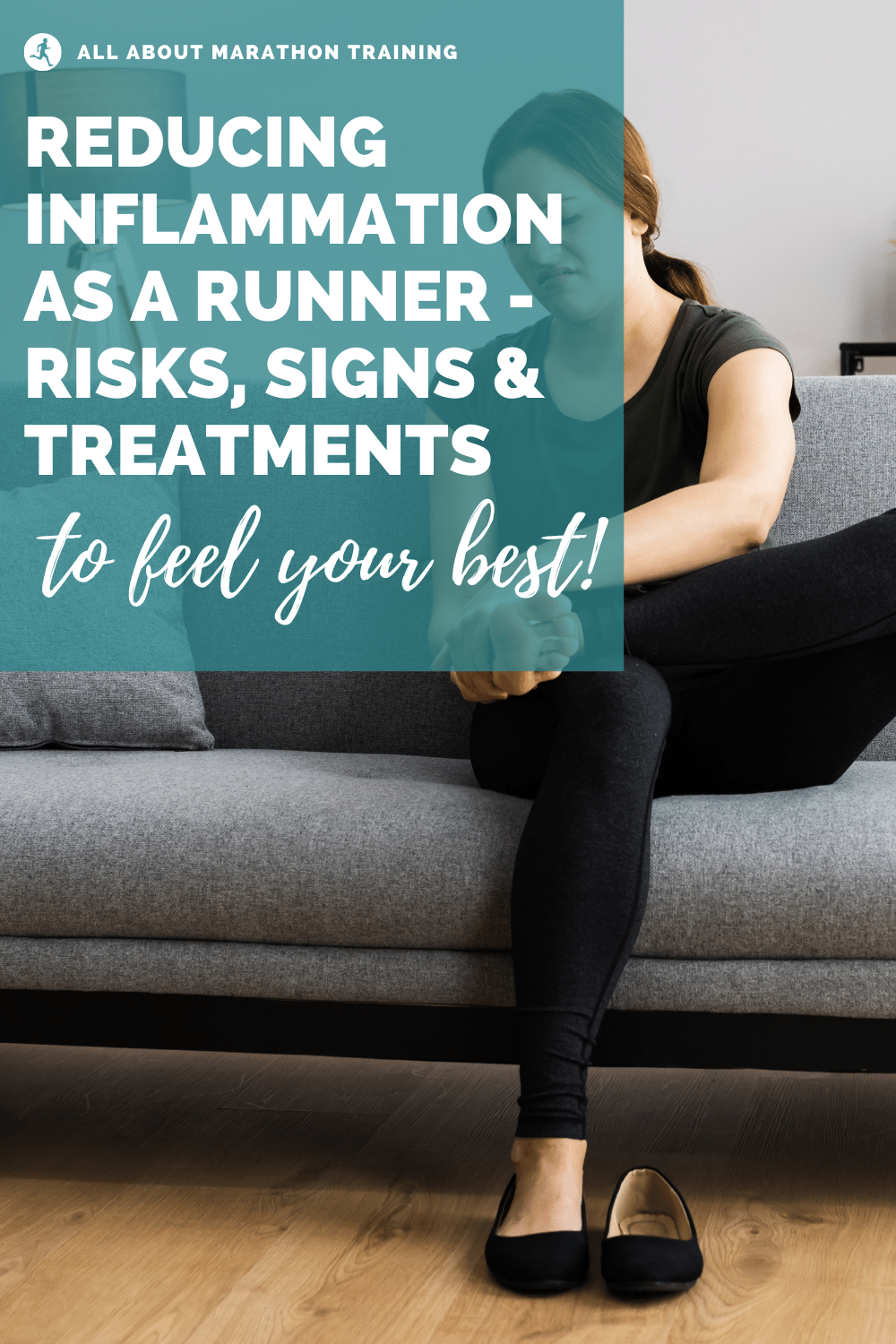
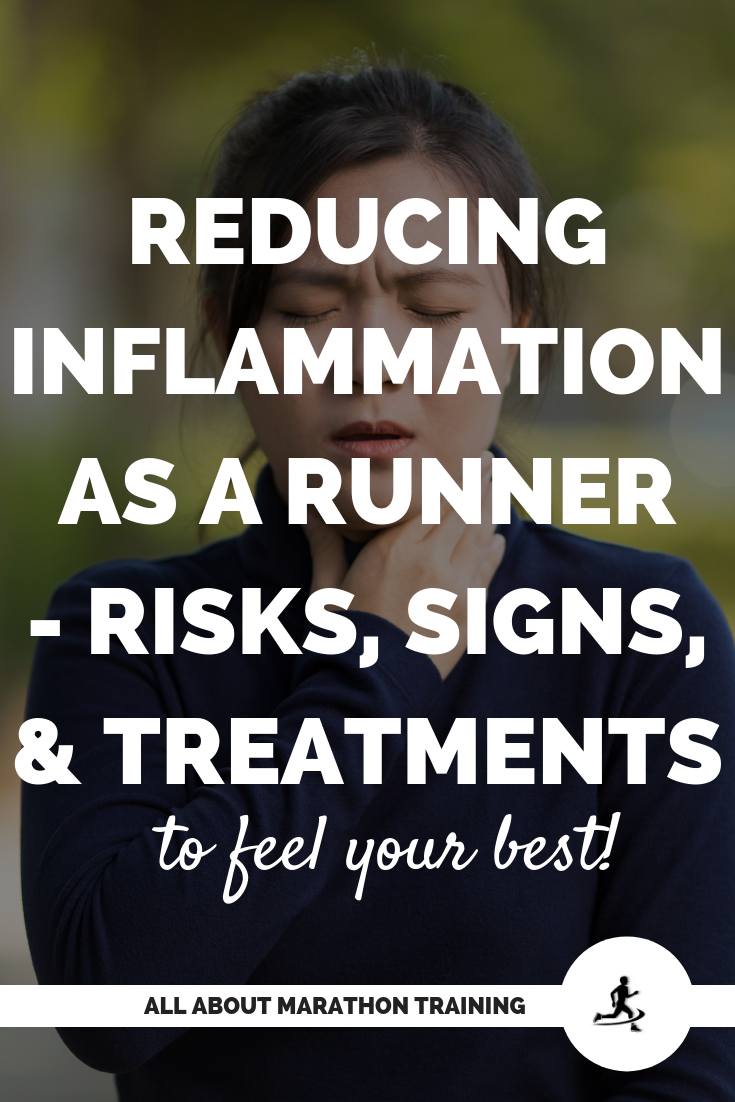
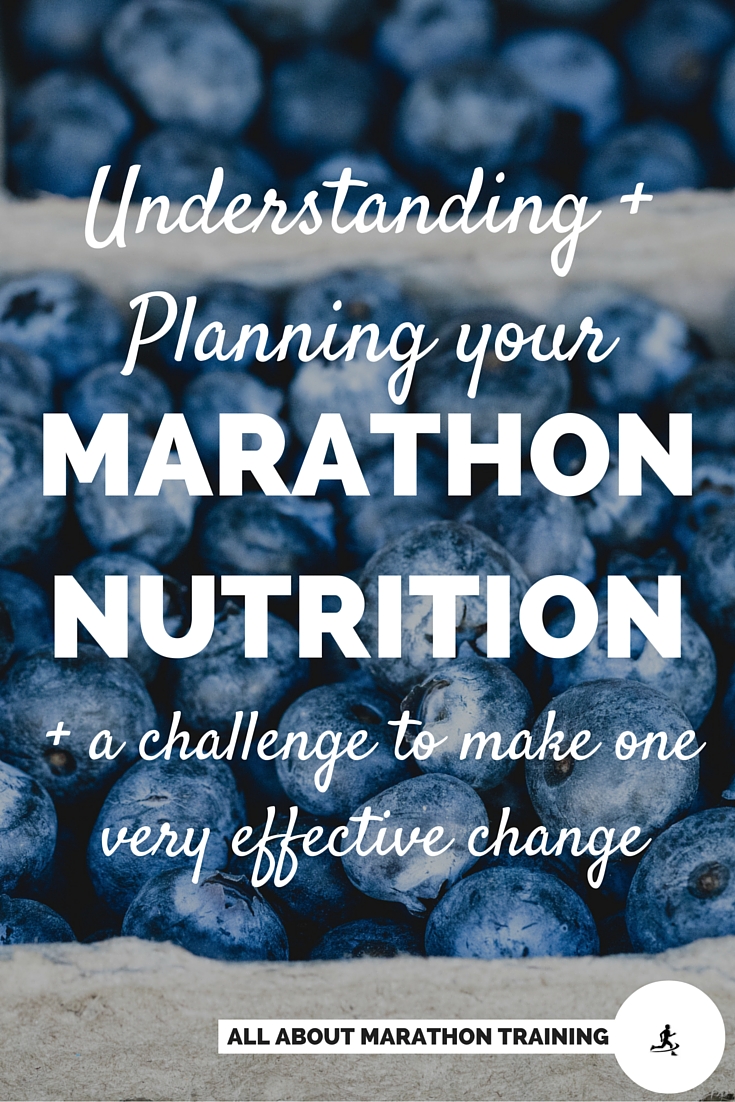

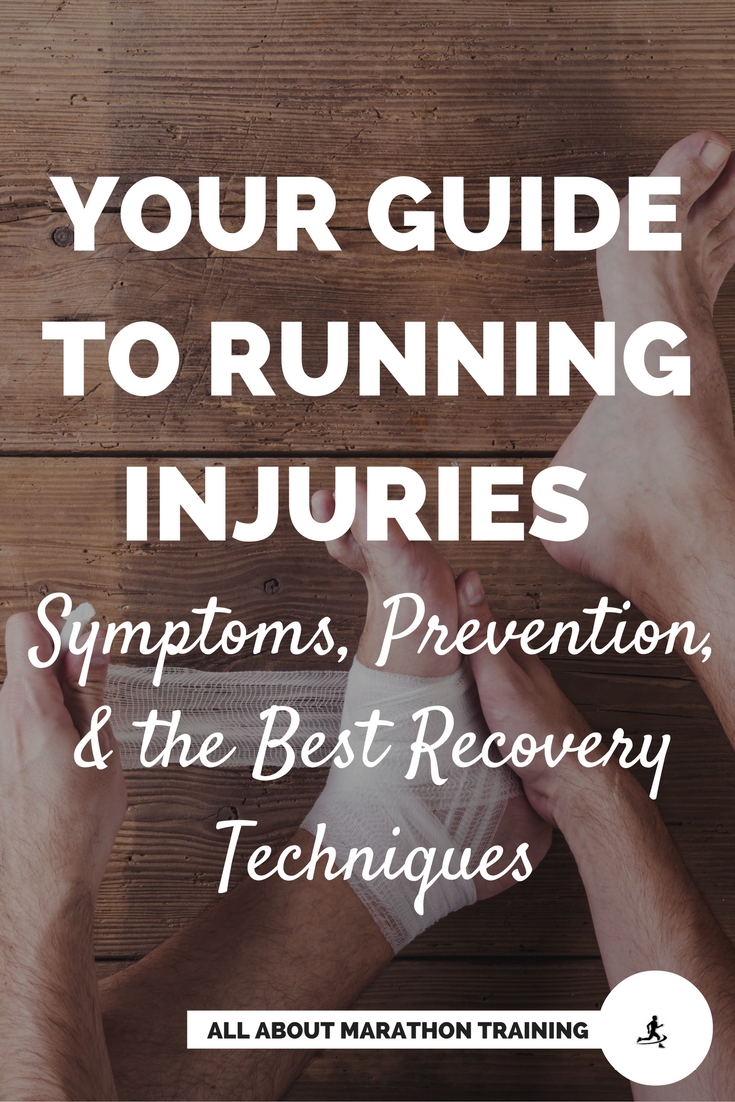

New! Comments
Have your say about what you just read! Leave me a comment in the box below.